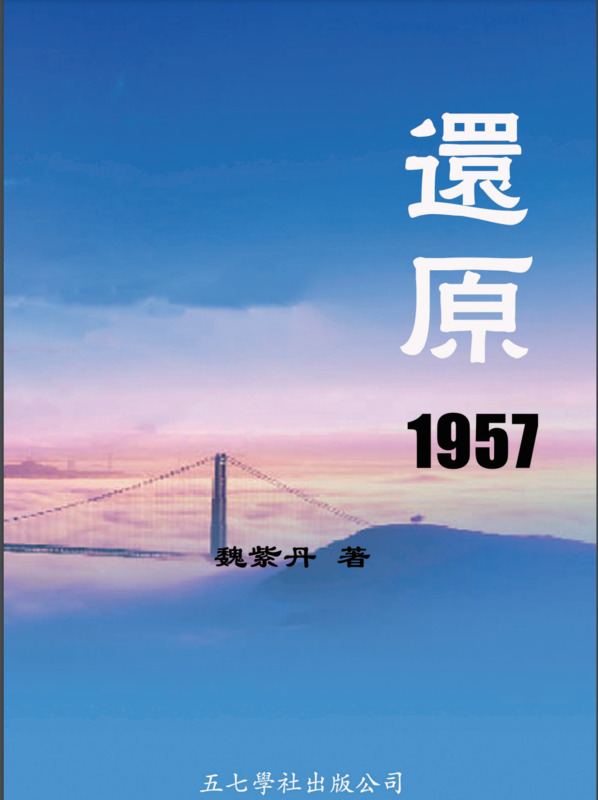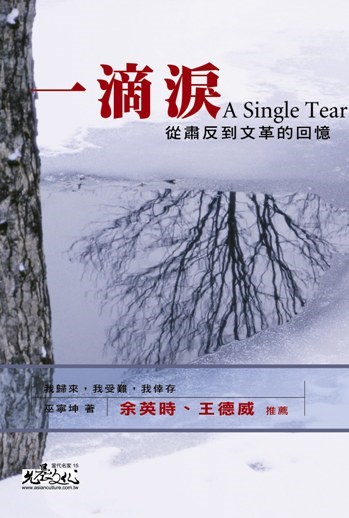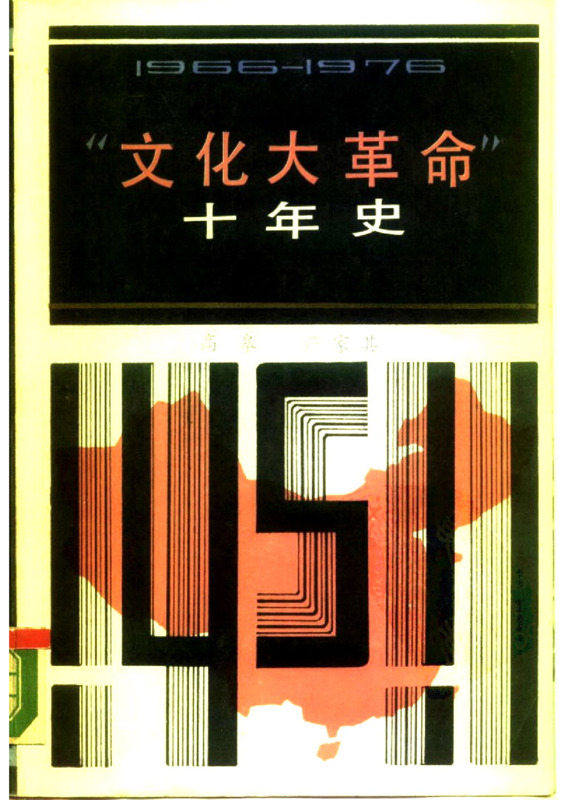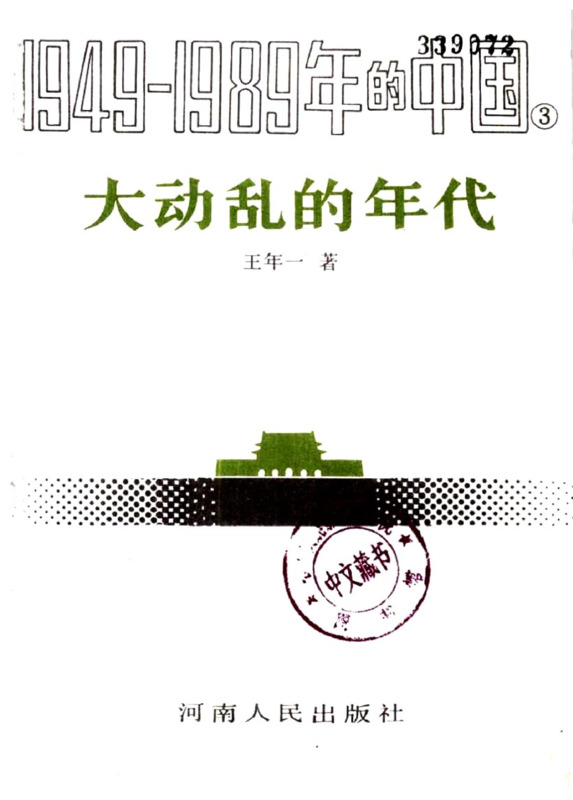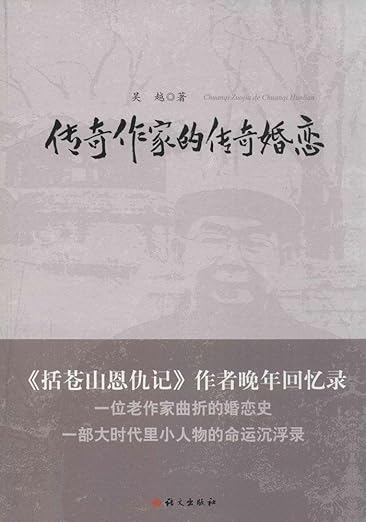Explore the collection
Showing 125 items in the collection
125 items
Book
Revisiting 1957
<i>Revisiting 1957</i> is not just about the history of the Anti-Rightist Campaign but is also a theoretical reflection on that history. Written by Wei Zidan (the penname for Wei Liyan), the book has three sections: upper, in which the author discusses philosophical problems of the campaign; middle, in which he discusses the origins of the campaign; and lower, which contains his thoughts on lessons for the future. In Wei's view, the people who were declared rightists stood up for freedom of speech. The campaign, therefore, was an assault on freedom of expression and resulted in a human rights catastrophe for China. The book also has an eleven-part appendix with reflections on miscellaneous events.
Wei Zidan was born in Henan Province in 1933 and was a teacher in the Anyang Middle School. He himself was labeled a rightist and brings a unique insider's account of the movement but unlike some personal accounts of suffering, Wei also brings a more analytical approach to the issue.
After moving to the United States in his later years, he collected information and found the freedom to complete this book. Published in Hong Kong in 2013 by the May 7 Society Press.
Book
Science, Democracy, Rationality: Xu Liangying's Anthology
Chinese intellectual Xu Liangying is a scholar of the history of scientific thought and an active warrior in defense of human rights. He weathered China's most extreme political storms and began to speak out again after China opened up slightly in 1977. This book collects his political speeches between 1977-1999. Originally published by Spiegel Publishing in Hong Kong in 2001, the book was later made into a PDF version by Xu Liangying's family in the hope that it would be circulated online to a wider audience.
Book
Seventy Years of the Chinese Communist Revolution
Professor Chen Yongfa's book examines the history of the Chinese Communist Party from the perspective of modern Chinese history. It divides it into three stages: revolutionary seizure of power, continuous revolution, and farewell revolution. It delves into three major issues in CCP history: nationalism, grassroots power structure, and ideological transformation and control. published by Taiwan's Linking Publishing in 2001.
Film and Video
Spark
<i>Spark</i> tells the story of a group of young intellectuals who risked their lives to voice their opinions about the Chinese Communist Party in the 1950s and 1960s. Following the Hundred Flowers Campaign of 1957, many intellectuals were branded as Rightists and banished to work and live in rural China. A group of students from Lanzhou University were among those sent to the countryside. There, they witnessed mass famine which resulted from government policies to collectivize agriculture and force industrialization in rural China. Shocked and angered by the government’s lack of response to the Great Famine, these students banded together to publish <i>Spark</i>, an underground magazine that sought to alert the Chinese population of the unfolding famine. The first issue, printed in 1960, included poems and articles analyzing the root causes of failed policies. However, as the first issue of <i>Spark</i> was mailed and the second issue was edited, many of these students, along with locals who supported the team, were arrested. Some of the key members of the publication were sentenced to life imprisonment and later executed, while others spent decades in labor camps.
In this 2014 documentary, Hu Jie uncovers the stories of the people involved in the publication of <i>Spark</i>. He conducts interviews with former members of the magazine who survived persecution, and also shows footage of the manuscripts of the magazine. A digital copy of the original manuscript of the first volume of <i>Spark</i> is also held on our website.
This film was awarded the Special Jury Prize for Chinese Documentary at the 2014 Taiwan International Documentary Film Festival and the Award of Excellence in the Asian Competition. Later, it won the Independent Spirit Award at the Beijing Independent Film Festival.
Periodicals
Spark, Issue 1
<i>Spark</i> was an underground magazine that appeared in the Tianshui area of Gansu Province in northwestern China during the 1959-1961 Great Famine. The magazine was lost for decades but in the late 1990s began to be republished electronically, becoming the basis of documentary films, essays, and books.
In 1959, the Great Famine was spreading across China. It was witnessed by a group of Lanzhou University students who had been branded as Rightists and sent down to labor in the rural area of Tianshui. They saw countless peasants dying of hunger, and witnessed cannibalism.
Led by Zhang Chunyuan, a history student at Lanzhou University, they founded <i>Spark</i> in the hope of alerting people to the unfolding disaster and analyzing its root causes. The students pooled their money to buy a mimeograph machine, carved their own wax plates, and printed the first issue. The thirty-page publication featured Lin Zhao's long poem, "A Day in Prometheus's Passion." The first issue also featured articles, such as "The Current Situation and Duty," which dissected the tragic situation of society at that time and hoped that the revolution would be initiated by the Communist Party from within.
The students planned to send the magazine to the leaders of the provinces and cities with a view to correcting their mistakes. But before the first issue of Spark was mailed and while the second issue was still being edited, on September 30, 1960, these students in Wushan and Tianshui were arrested, along with dozens of local peasants who knew and supported them. Among them: Zhang Chunyuan was sentenced to life imprisonment and later executed; Du Yinghua, deputy secretary of the Wushan County Committee of the Chinese Communist Party, was sentenced to five years' imprisonment for having interacted with the students, and later executed. Lin Zhao was detained and also executed. Other key members, such as Gu Yan, Tan Chanxue, and Xiang Chengjian, were all sentenced to long years in labor camps.
In the 1990s, Tan Chanxue devoted herself to researching historical information and figures to bring this history to life. She found in her personnel file (<i>dan'an</i>)photographs of the magazine, as well as self-confessions and other evidence used in the students' trial. Eventually, the photos were collated into PDFs, which began to circulate around China.
Editors' note: This site the original handwritten version and a PDF of all the articles from the first issue of <i>Spark</i>. We will also make available transcripts of the essays in Chinese and are searching for volunteers to translate the texts into English. Please contact us if you're interested in helping!
Book
Sparks: A Chronicle of the Rightist Counter-Revolutionary Group at Lanzhou University
During the worst years of the 1960 famine, a group of teachers and students at Lanzhou University decided to publish an underground publication, <i>Spark</i>, to alert Chinese people to the growing disaster and expose the authoritarianism of the Chinese Communist Party. Only two issues of this underground publication were printed before it was broken up as a counter-revolutionary group case and 43 people were arrested.
The author of this book, Tan Chanxue, was a key participant and helped save the memory of <i>Spark</i> from being lost. Tan was the girlfriend of Zhang Chunyuan, the magazine's founder, and participated in key moments of the magazine's short lifespan. She was sentenced to 14 years in prison, but was later released and rehabilitated, and taught at the Jiuquan Teachers' Training School. In 1982, she was transferred to the Dunhuang Research Institute as an associate researcher, and retired in 1998, settling in Shanghai.
It is largely through Tan's efforts that we know about <i>Spark</i>. She was able to look into her personnel file (<i>dang'an</i>), where she discovered the issues of the magazine, as well as confessions of the people arrested, and even her love letters to Zhang. She photographed this material and later it was turned into PDFs, which circulated around China starting in the late 1990s, helping to inspire books and movies.
Book
Summer of 1957: From One Hundred Schools of Thought to Two Schools of Thought
This book comprehensively records and analyzes the Anti-Rightist Campaign.
The author Zhu Zheng was born in 1931. He was once the editor of Hunan People's Publishing House and a well-known expert on Lu Xun in China. He was classified as a Rightist in 1957 and personally experienced the Anti-Rightist Campaign. This book references information from CCP party newspapers at that time, as well as his recollections, making this book informative and reliable.
The "two dueling schools of thought" in the subtitle of this book comes from The Selected Works of Mao Zedong. Mao called for one hundred schools of thought to contend but in fact only intended for two to compete: the bourgeoisie and the proletariat.
This book was first published by Henan People's Publishing House in 1998. It is one of the earliest studies of the movement in China.
Book
Ten-Year History of the Cultural Revolution, The
The authors of this book, Yan Jiaqi and Gao Gao, are a married couple. Both are scholars at the Chinese Academy of Social Sciences (CASS). Yan was the first director of the Institute of Political Science at the CASS and was involved in the Political Reform Office under Premier Zhao Ziyang. The couple went into exile in the U.S. after the June 4 Incident. The book was published by the Tianjin Publishing House in 1986. With a circulation of more than one million copies, many people began to learn about the full history of the Cultural Revolution from this book.
Book
The Age of Great Unrest: China 1949-1989
The author of this book, Wang Nianyi (1932 - September 13, 2007), was an expert on the history of the Cultural Revolution. He has a clear understanding of the causes and circumstances of the Cultural Revolution. He is regarded as doing "pioneering work" in China's domestic study of the Cultural Revolution. According to Qizhi's recollection, Wang Nianyi compiled <i>Chronicle of the Cultural Revolution</i>, <i>The First Year of the Cultural Revolution</i>, <i>Dictionary of the Cultural Revolution</i>, <i>Miscellaneous Discourses on the Cultural Revolution</i>, and <i>Research Materials on the Cultural Revolution</i>, which have not been published in China.
Book
The Brothers Mingjian Xue & Yefang Sun
This book concerns two Chinese economists, Xue Mingjian and Sun Yefang. Xue Mingjian (1895-1980, former name Xue Epei, he changed his name after joining the volunteer student armies during the 1911 revolution - Mingjian (明剑) meant “to eliminate the Qing government with sword and revenge on behalf of the Ming Dynasty (剑除满清,为朱明报复)” ) was "the founder of modern Chinese national enterprise economics, the pioneer of modern national industry, a civil society activist, educator and scholar" (author's preface). He served as a delegate to the National People's Congress of the Republic of China, Senate member of the Kuomintang, and a popularly elected legislator. Sun Yefang (1908-1983, former name Xue Eguo, he changed his name out of security concern after the incident that he got arrested by KMT when he was a underground CCP member), by contrast, a member of the Communist Party of China, was an important economist in post-1949 China, who was persecuted during the Cultural Revolution and regained attention and respect after the reform and opening-up period. The author tells the story of the two brothers' very different life trajectories, while pointing out that even though they were in different political camps, their concern for and practice of humanitarianism were in fact the same.
The book was first published by China SDX Joint Publishing in 2009, and was to be reprinted by Economic Press China in 2014, but it was censored. The version in our archive is published by Boden House in 2023.
Book
The Doubtful Clouds of 1957-- Cracking the Code of the Anti-Rightist Movement
The Anti-Rightist Movement in China began in 1957 with the reorganization of intellectuals, followed by the Great Leap Forward, the People's Commune, and a series of calamities such as the Great Famine. The Hong Kong Five Sevens Society was founded in 2007 with the aim of collecting, organizing, and researching historical information about the Anti-Rightist Movement. It is headed by Wu Yisan, a writer who moved to Hong Kong from mainland China. The author of this book, Shen Yuan, who was also a Rightist at the time. He has systematically researched and organized the Anti-Rightist Movement that took place in 1957 and attempted to answer some of the unanswered questions.
Book
The Goddess of Freedom of the Chinese Nation -- An Anthology of Essays in Honor of Lin Zhao 40 Years After Her Death
Lin Zhao, formerly known as Peng Lingzhao, a native of Suzhou, was admitted to the journalism department of Peking University in 1954, but was classified as a Rightist in 1957. She was arrested and imprisoned in October 1960 because of her involvement with the underground magazine <i>Spark</i>. In 1965, Lin Zhao was sentenced to 20 years' imprisonment for "counter-revolutionary crimes." On April 29, 1968, she was sentenced to death and executed on the same day at the age of 36. This book is a collection of more than sixty articles written in memory of Lin Zhao.
Film and Video
The Gulag Book
This movie records how Zhang Xianzhi went from being a soldier to a prisoner and then to an independent writer. His experience and thought process is compared with that of the Russian writer Solzhenitsyn. The title of the film is taken from the title of Zhang Xianzhi's book <i>Anecdotes from the Gulag</i>, which takes the viewer on a journey to China's Gulag Archipelago, a labor camp in Sichuan. The extreme conditions and little-known tragic history of the camp are presented. The movie is 42 minutes long and was filmed in 2012.
Book
The Herald of History: The Solemn Promise of Half a Century Ago
Compiled by the Sichuan writer Xiao Shu (b. 1962), this book offers a variety of pro-democracy statements released by the Chinese Communist Party media, including short commentaries, speeches, editorials, and documents from <i>Xinhua Daily, Jiefang Daily, Party History Bulletin</i>, and <i>People's Daily</i> from 1941 to 1946. The essays criticize the Kuomintang government for running a "one-party dictatorship" and promised freedom, democracy and human rights.
The book was published by Shantou University Press in 1999. <a href="https://archive.ph/20220329191611/https://www.rfi.fr/tw/%E4%B8%AD%E5%9C%8B/20130817-%E9%A6%99%E6%B8%AF%E5%A4%A7%E5%AD%B8%E5%86%8D%E7%89%88%E3%80%8A%E6%AD%B7%E5%8F%B2%E7%9A%84%E5%85%88%E8%81%B2%E3%80%8B">According to Xiao Shu</a>, the book was heavily criticized by the then-head of the Propaganda Department, Ding Guangen. The publishing house was temporarily suspended, and copies of the book were destroyed. It was republished in Hong Kong by the Bosi Publishing Group in 2002, and reprinted by the Journalism and Media Studies Center of the University of Hong Kong in 2013.
Book
The Legendary Marriage of A Legendary Writer
The author, Wu Yue, was the editor of several media including Yuwen Chubanshe. This book, as his memoir, recreates his personal destiny in different social situations, including the anti-rightist and Cultural Revolution and other special times, the frustrations of a generation of intellectuals held hostage in the political wave. The book tells the story of the author's many marriages and love affairs under special political circumstances. It also analyzes the deformity and absurdity of the political re-education through the labor system as well as the impact on humanity.
Book
The Power of Tiananmen:State-Society Relations and the 1989 Beijing Student Movement
<i>The Power of Tiananmen: State-Society Relations and the 1989 Beijing Student Movement</i> is a sociological monograph. It explains the process of the 1989 school movement and interprets the political and economic situation from four perspectives: state legitimacy, ecological environment and mobilization structure, discourse and modes of action, and public opinion. Author Zhao Dingxin interviewed 70 participants in the movement at the time. He also examined many little-known domestic documents. Thus, theory and evidence are closely intertwined.
The book won the 2002 Distinguished Book Award (Collective Action/Social Movements) and the 2001 Distinguished Book Award (Asian and Asian American) from the American Sociological Association.
It is published by the Chinese University of Hong Kong Press.
Book
The Realm of Historiography
This book is a compilation of some of Gao Hua's speeches, book reviews, commentaries on current affairs, reviews of student papers, and lecture transcripts. It includes his studies and reflections on themes around revolution, civil war, and nationalism, his comments on the works of Long Yingtai, Wang Dingjun, and Mao Zedong, and his observations on Taiwan's social and political realities during his visits to Taiwan. In addition, the book contains a selection of Gao Hua's lecture notes on the theory and methodology of historiographical research, as well as on the production of official historical narratives and the development of folk history, enabling readers to gain further understanding of the philosophy and methodology behind Gao Hua’s research.
The book was published by Guangxi Normal University Press in November 2015 before the fourth anniversary of Gao Hua's death, for which the publisher was disciplined by the Central Propaganda Department and the State Administration of Press, Publication, Radio, Film and Television.
